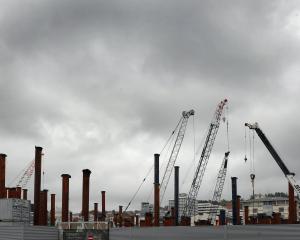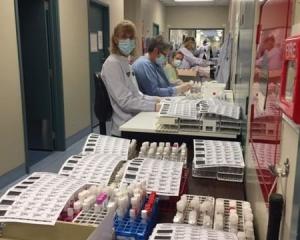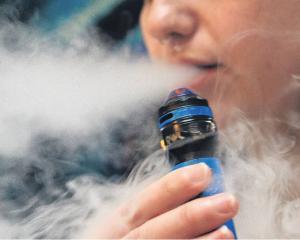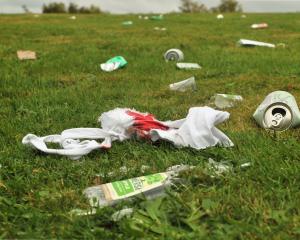
Cancer Society OtagoSouthland acting chief executive Mark Hamer and his family know first-hand the benefit of having the support of the society’s Supportive Care programme.
Mr Hamer was working as the society’s marketing manager when his mother, Jean Hamer, became ill and was diagnosed with a brain tumour, along with other associated cancers, in 2016.
‘‘It was very emotionally difficult, sitting with an older person who is being told by a clinician that they don’t have long to live,’’ he said.
Jean’s brain cancer was very advanced and the radiotherapy treatment started immediately. Things were moving so quickly that she had trouble taking in what was happening.
‘‘It was clear that mum was really struggling to take it all in, and was reeling from the emotional impact — and so was the family.’’
There were many emotions to deal with, around feelings of loss and the family members’ own mortality, he said.
‘‘It was heartbreaking watching mum having to let go of hopes, as things moved so fast.’’
Working at the Cancer Society meant MrHamer understood the function of the Supportive Care service, and he was grateful when then counsellor Jo Scott Weir took on his mother as a client.
‘‘Jo would go up to Yvette Williams [rest-home] and spend an hour or more with mum, just talking with her and hearing about her rich life history.
His mother grew up in Scotland, was a nurse in Aberdeen and, after emigrating to New Zealand, became deputy director of the Plunket Society in the 1970s.
She went on to become nurse manager of rest-homes for Presbyterian Support.
‘‘Jo just took the time to let mum talk about her life.
‘‘It was a really important discussion to have with someone who wasn’t family — in some ways it was like putting her life on record.’’
Having someone outside the family to talk to allowed people to talk about their worries, which was very important, he said.
Mr Hamer had also lost his father, Peter Hamer, to bowel cancer 10 years ago, but at that time the family was not aware of the support available through the Cancer Society.
‘‘This is one of the reasons why I am passionate about the need for people to know about the Cancer Society and all the services that are available.’’
This ranged from the Supportive Care service and its one-on-one support, workshops and clinics, education on survivorship, to stays at Daffodil House.
‘‘Really it is the emotional support and the one-to-one time that makes it so special,’’ Mr Hamer said.
The Cancer Society OtagoSouthland receives no direct government funding, and is supported through donations.
About 23,000 people are diagnosed with cancer and 9000 die each year in New Zealand.












